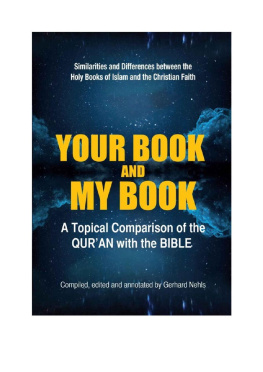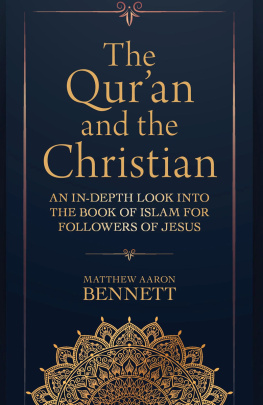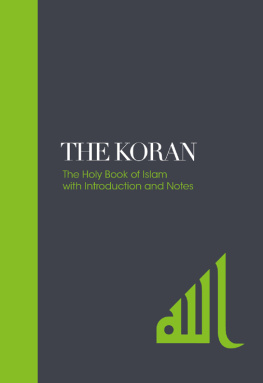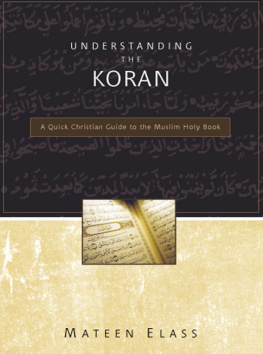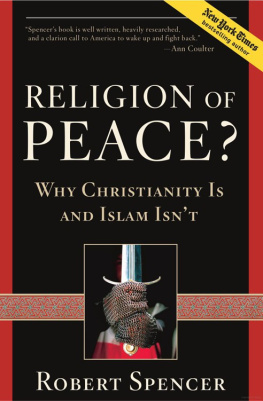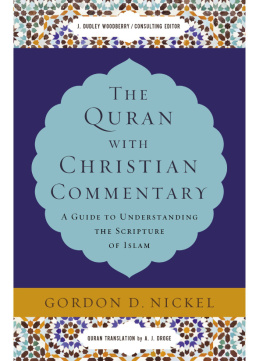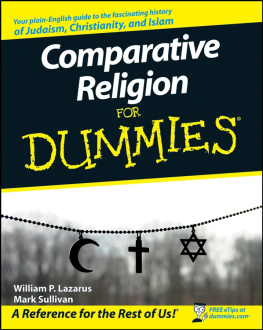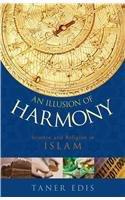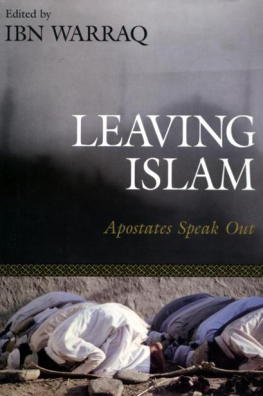Today more relevant than ever:
A Topical Comparison of the Quran with the Bible
An Evaluation of the Similarities and Differences Between The Holy Books of Islam and the Christian Faith
Compiled and Edited and Narrated By
GERHARD and HANNELORE NEHLS
Most Christians and Muslims never chose their religion. They were born into it. Most attained a basic knowledge of their religion in a Sunday School or Madrassa class.
This book is unique in that it lets the Bible and the Quran (Koran) speak for themselves, instead of consulting the one or another opinion about these two books. Its topical order makes it easy to discover their similarities - but also their differences
Faith is based on knowing why and what to believe. The readers of this book will be surprised to discover what they did not even know about the very source of their own religion - and more.
Gerhad Nehls, born in Germany, spent his early years under the terror and turmoil of World War II, which did not allow him to enjoy much formal education. To make up for the lack, he spent much time in private studies with a particular emphasis on discovering the meaning of life, and closeness to God.
Over the years Gerhard enjoyed many contacts with Christians, Muslims and Hindus, enjoying a goodly number of spiritual discussions with them, which led to the compiling of this book.
Your Book and My Book by Gerhard Nehls
2016 1st ed.
Copyright 2015 by
Gerhard Nehls
All rights reserved. No part of this publication may be reproduced, distributed or transmitted in any form or by any means, without prior written permission.Bible quotations are from the World English Bible, except where otherwise indicated.Quran quotations are from the translation by Yusuf Ali, except where otherwise indicated.
Cover design by Nicola Witbooi
Book Layout 2016 Rob Rooker
Gerhard Nehls g.nehls@bigpond.net.au
This book is dedicated to my loving and devoted wife, partner, friend, comrade, co-worker, corrective, and encouragement for sixty years. She invested much time in the research for this book.
"What a vast difference there is between knowing God and loving Him!
Humans must be known to be loved. God must be loved to be known."
"There are only two kinds of people whom we may call sensible:
those who serve God with all their heart because they know Him
and those who seek God with all their heart, because they do not know Him yet."
Blaise Pascal
Our Point of Departure
God and We
Seemingly all mankind has an innate awareness of a higher power, a higher being, a first cause for the world to exist, and a creator of it all.
It is probably needless to mention that we, as finite men, need to be aware of our limitation to fathom the mystery of the transcendent, the eternal. We may well understand the world with its natural laws, Mathematics, Biology, Physical Sciences, Geography, to name just a few. We may also gain an understanding of Politics, Economics, Jurisprudence or Philosophy.
Our understanding of the spiritual world rests on another level of perception. Religions try to fill in what they deem to be missing. And that is where misunderstandings begin.
God is a mystery to us. Our perception of God is possibly coined more strongly by our culture, its traditions and its institutions, rather than by God himself. And that may well lead to a view of God that resembles a superman rather than the eternal almighty God.
All we can know of God is what he reveals of himself. Obviously, we may conclude from the observation of nature and the universe, as well as our innate conscience that there must be a Creator God. The German philosopher Immanuel Kant (17241804) pointedly concluded: Two things awe me most, the starry sky above me and the moral law within me . We cannot recognize God by physical features, as in the case of other people. In view of that God has chosen revelation to make himself known. Again, we humans cannot know anything about God, his character, his will, and the purpose of his creation - unless it is revealed to us by himself. Anything beyond falls into the realm of conjecture.
Why this Book?
This book is composed during a time of deep distrust, and even violent clashes, between the followers of Christianity and of Islam. It aims to promote an understanding of the faith issues that separate the followers of the two religions. As it is, each side is inclined to assess the other with grave suspicion, all too often without even a basic knowledge and understanding of the core beliefs of both religions. Prejudice and fear have been deployed to build walls of separation between Christians and Muslims, not unlike apartheid, as it used to be practiced in South Africa.
Donald N. Larson, a linguist at Bethel College, USA, writes: Only when the Christian can understand and appreciate the Muslims reality as he (i.e. the Muslim) does, can he talk about his own Christian reality in terms which the Muslim can understand and in ways that enable him to appreciate the Christians point of view. That, of course, is equally true the other way round.
This book encourages us to learn more, firstly, about our own faith, and then about the faith of our neighbor. By comparing our ancient Scriptures, we will understand our own faith better, and also the faith of the others. This should indeed promote a genuine spiritual conversation rather than one based on hatred or prejudice.
The Concept of the Book
This book sets out to compare the central faith issues of the Bible and of the Quran side by side. This is done systematically, and in topical order. It is based on the actual Scriptures and does not promote any doctrine or dogma that is peculiar to any established religion. The selection of the passages under review in this book has not been done randomly. The compiler has conscientiously sought to present an honest and balanced condensation of what is written on each given topic in the two books. More than 250 topics have been chosen. 47 explanatory notes are added in the appendix.
The fact that we read passages from the Books themselves rather than commentaries about them, makes an evaluation all the more authentic. The side by side reading is not easily done, for both Books place varying emphases on the one or other topic. Some appear to be marginal in one of our Books, but exhaustive and detailed in the other. Some passages even find reference in only one of the both Books.
Be ready for a surprise. Almost certainly, you, the reader, will discover aspects of your faith or religion that you were unaware of until now. Likewise, you will learn to understand the foundations of your Christian or Muslim neighbors beliefs - or at least what it should be like according to their Book.
You may well find that a popular belief you may hold will be challenged. At times you will not fail to notice distinct, sometimes irreconcilable differences between the two books. It is left to the reader to evaluate which of the two Books under consideration he or she will ultimately choose as the foundation of their faith and life.
The Two Books under Consideration
Our two Books were and are the underlying cause for deep devotion, as well as hatred that again and again leads to violent conflicts. Both of the Books have been passionately loved and hated. Innumerable numbers of volumes have been written about them. Millions of people based and base their faith, lifestyle and only hope for eternity on one of the two Books.
Untold numbers of believers have sacrificed their lives for God, as he is made known to them, not to mention the many thousands of victims caught in the crossfire of religious wars. All that, by itself, proves little more than the quality their faith in the message of their Book as they understand it. It does not verify the truthfulness of its content.

